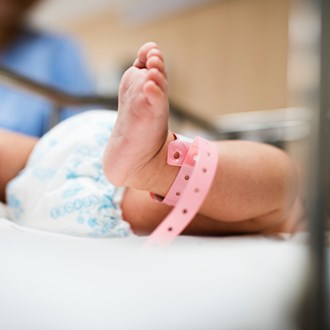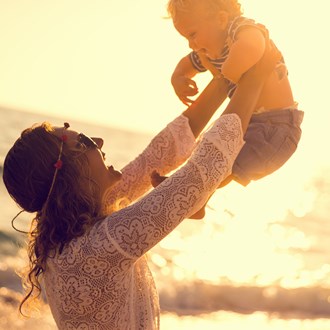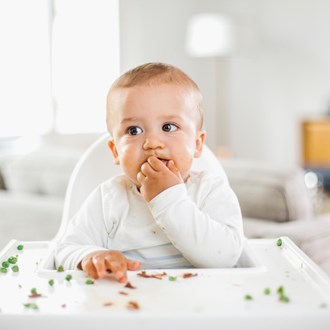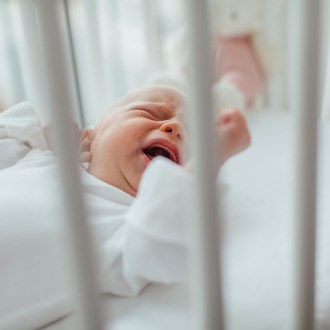When do babies laugh?

Your little one may be pint-sized but they can develop a great sense of humour very early on – and may be amused by the simplest of things! So when do babies laugh?
When do babies laugh?
Just like babies learn to crawl before they walk, babies learn to smile before they laugh. In fact, babies learn to smile in the womb (called reflux smiles).
Related: When do babies smile?
Babies first real smiles tend to occur around six weeks to 12 weeks in age and shortly after, at around three to four months old, those delightful baby smiles may turn into laughter. However, babies reach milestones at different times, so don’t be alarmed if your baby’s laugh develops a little later. If you are at all concerned about your baby reaching milestones, speak to your community health nurse, GP or paediatrician.
Ready, set, LAUGH!
Your baby develops at lightning speed in the first 12 months. From birth to about four months of age their eyesight becomes more focused and they can see your facial expressions. Their hearing also develops. Your baby may respond to a raised voice by crying. They may respond to mummy or daddy’s calming voice by settling. Or, they may respond to happy voices or laughter by smiling or laughing too.
And yes, this response means they are happy too!

Creating the perfect ‘laughing’ environment for baby
Usually first laughs are reserved for the people baby feels most secure with – mummy, daddy, brother or sister. The favourites! The more time you or big brother spend making funny faces and sounds to baby, the more likely baby will respond with laughter!
Belly laughs: Cognitive and physically initiated laughter
Once baby’s initial laughs begin, the laughter usually keeps flowing! As baby develops, he will start to respond to physical cues. Try blowing raspberries on baby’s belly and see what response you get?! Or tickling your little ones toes, motioning ‘circling your baby’s palm as you sing ‘Round and round the garden like a teddy bear…’
And watch in awe as their very own sense of humour develops! Pull funny faces, poke your tongue out, make mouth noises and watch for what your little one finds funny… or not … as he develops his own personality.

What does baby laughter mean?
Baby smiles and baby laughter mean your baby is happy! They are also signs your baby feels secure and comfortable enough to express their happiness.
How can you encourage baby to laugh?
- Make funny faces! Oh, oh! Who would have thought mouthing ‘O’ and ‘E’ and rolling your eyes, or poking your tongue from side to side could be so funny?!
- Make funny sounds. Words, gurgles, snorting! Play with Try a range of different sounds and watch your baby’s face to determine what they find funny.
- Find their tickle spot! A little giggle from baby can tell you a lot about where to locate their tickle spot! Is it the toes, the underarms, the inner thigh? See what makes them smile.
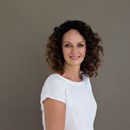
Franki Hobson is a women’s lifestyle journalist and editor with more than twenty years’ experience. Her areas of expertise include parenting and health and well-being. Franki has two gorgeous boys, Maxwell, 10, and Louis, 1 ½.


